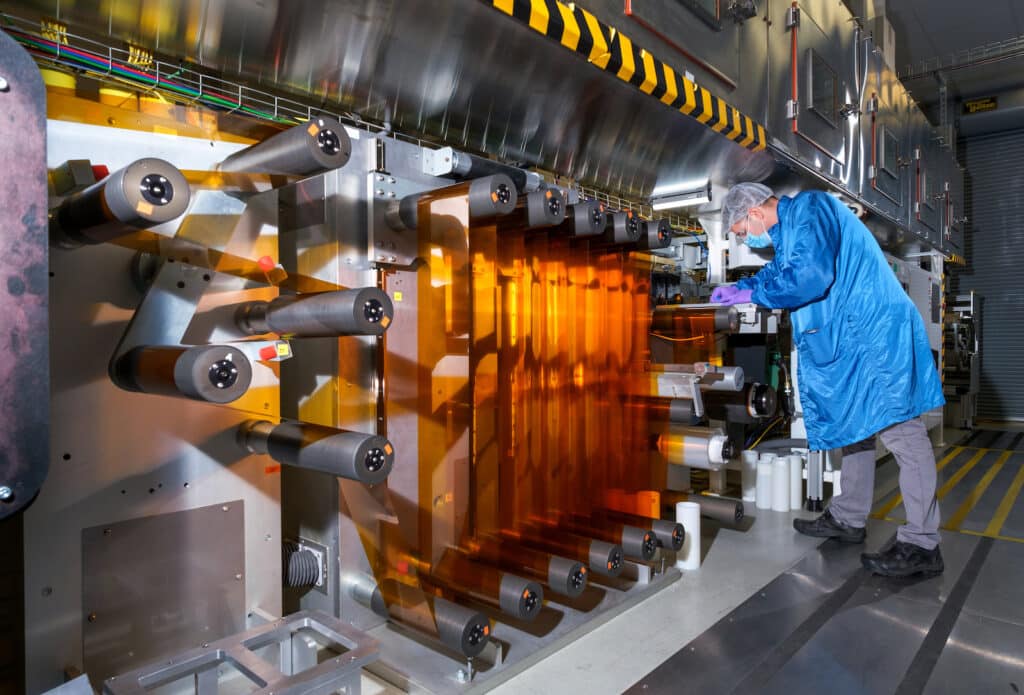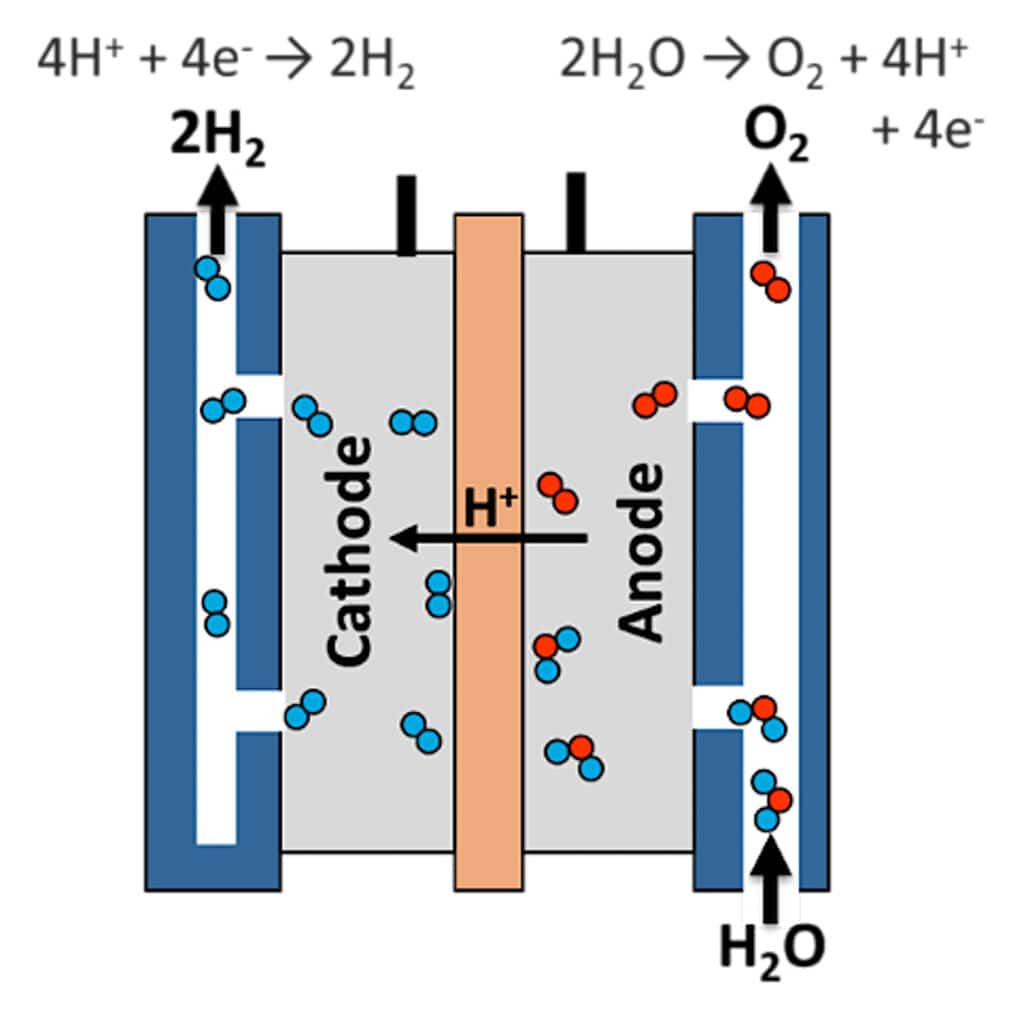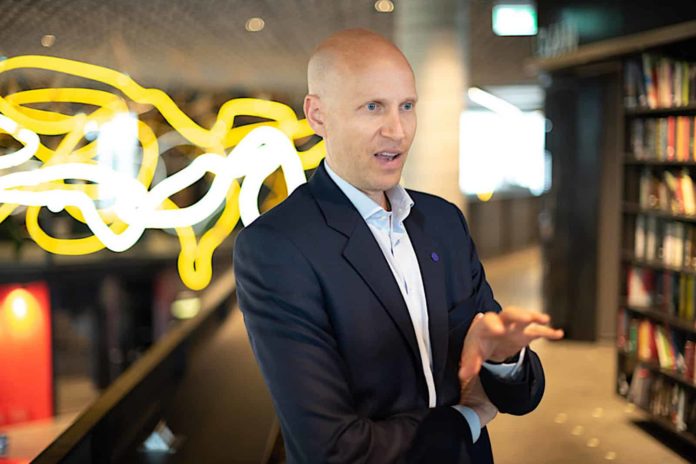A partnership with General Motors has Norway-based Nel Hydrogen investing $400 million in an electrolyser production plant in Michigan.
Nel develops the processes needed to produce, store and distribute hydrogen as a renewable fuel for motor vehicles, and is setting up shop in the Wolverine State, although a final location for the facility hasn’t been made yet.
“The choice of Michigan is based on an overall assessment of what the state can offer in terms of financial incentives, access to a highly skilled workforce, and cooperation with universities, research institutions, and strategic partners,” said Håkon Volldal, the CEO of Nel.
Partnership with GM critical
The company cited the proximity to Detroit-based GM as an additional deciding factor in the choice. The two companies collaborated last year to develop and improve Nel’s proton exchange membrane, or PEM, electrolyzer technology.
Last November, in a bid to accelerate the industrialization of its PEM electrolyzer platform, Nel Hydrogen U.S. entered into a joint development agreement with GM. By combining GM’s fuel cell expertise and Nel’s electrolyzer knowledge, the companies hope to enable more cost competitive sources of renewable hydrogen.

“Adding Nel as a strategic collaborator is an important step to help us commercialize fuel cell technology. Electrolysis is key to creating consistent, clean sources of hydrogen to power fuel cells,” Charles Freese, executive director of GM’s Global Hydrotec unit.
Interest in hydrogen as an energy source for transportation is rising with makers of heavy-duty trucks. The weight of the heavy EV batteries limits the viable range of semi trucks, displacing potentially profitable freight packages.
A slew of heavy truck makers, including Kenworth, Paccar and Hyundai, are currently running pilot programs, out of the Port of Long Beach. They’re using hydrogen-fuel trucks to move freight from ships to intermodal distribution centers.
Hydrogen, the most abundant and lightest element in the universe, can play a significant role in accelerating Michigan’s clean-energy transition away from fossil fuels.
Nel is still evaluating various locations in Michigan for the new gigafactory, which will be the first facility in the United States to manufacture equipment to produce liquid alkaline electrolysis. Through electrolysis, hydrogen can be produced from water and renewable energy.
Hydrogen part of push for clean energy
When fully developed, the Michigan facility will have a production capacity of up to 4GW of Alkaline and PEM electrolyzers. At 90% capacity, the facility will support approximately 1.4 million cars on a regular basis, Volldal said.

Volldal added Nel has a history tracing back to 1927 and is today a leading pure play hydrogen technology company with a global presence. The company specializes in electrolyzer technology for production of renewable hydrogen and hydrogen fueling equipment for road-based vehicles.
Nel’s product offerings are key enablers for a green hydrogen economy, making it possible to decarbonize various industries such as transportation, refining steel and ammonia.
The project is expected to benefit from the Biden administration’s investments in clean energy, including hydrogen.
“From Day One, the Biden administration has been committed to revitalizing America’s manufacturing industry and combatting climate change by investing in clean energy technologies,” said Commerce Secretary Gina Raimondo.
Raimondo added investment in research and innovation through the U.S. Department of Energy’s Hydrogen and Fuel Cell Office has led to technology advances that will now be transitioned to gigawatt scale in real world manufacturing.
Further, DOE’s $7 billion funding opportunity, announced in September 2022, will create regional “H2 Hubs” that will form the foundation of a national clean-hydrogen network. This is part of a broader $8 billion hydrogen hub program — funded by the Bipartisan Infrastructure Law — which will lead to the selection of six to 10 hubs, according to the U.S. DOE.
Additionally, the U.S. government is backing development of electrolyzer and fuel cell technology through the Inflation Reduction Act. Signed into law last year, it provides tax credits of up to $3 per kilogram of clean hydrogen.

